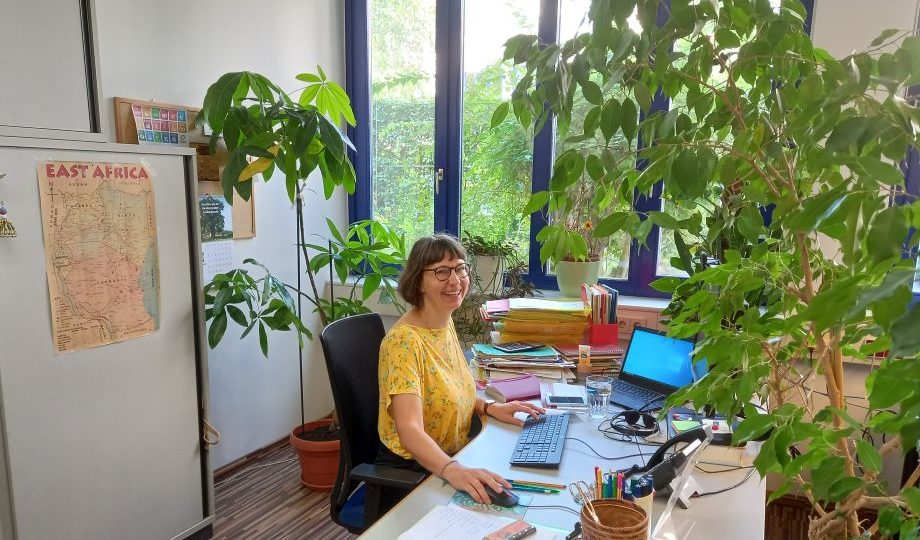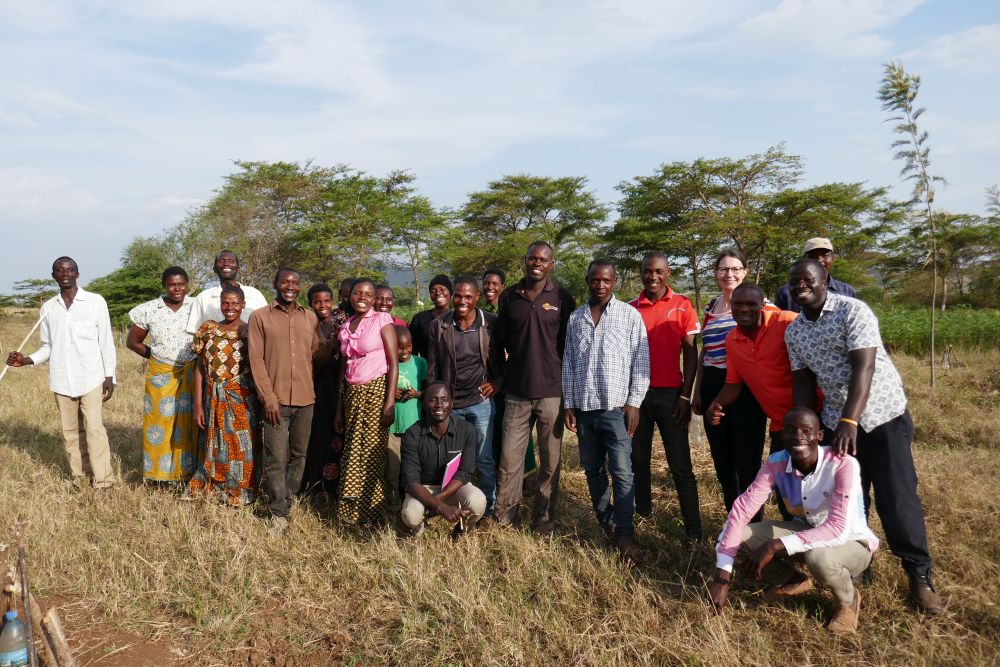Make Your Experiences Count. They Can Change the World.
LET’S BRING ALL OF OUR KNOWLEDGE AND EXPERIENCES TOGETHER.
TOGETHER WE KNOW MORE. TOGETHER WE ACHIEVE MORE. TOGETHER WE DO BETTER.
LET’S BRING ALL OF OUR KNOWLEDGE AND EXPERIENCES TOGETHER.
TOGETHER WE KNOW MORE. TOGETHER WE ACHIEVE MORE. TOGETHER WE DO BETTER.
Published: August 30, 2021
This is the second episode of our report special. This time, Ulrike Bey, Programme Coorindator of Kenya and Tanzania, shares her point of view on the reports 2020 with us. We talked about suprises, lessons learned and highlights that came along with the report process.

How would you describe the reporting process in general?
The process is strictly standardised – in both programmes: Technical Advisor Programme (TAP) and co-financing projects. First, we send out the notification to the Regional Office that the reporting period is coming up and provide them with the exact deadlines. The Regional Office gets active and requests the reports from Technical Advisors (TAs) and the project partners. Once sent in, these are processed by the Regional Office first. Ideally, when they are sent over to us, they are pretty much finished. Sometimes we have to ask for a few figures or details to make sure that everything matches – but for the most part the reports were already very well prepared.
In the Vienna office we then process the reports: the individual partner reports for the Member Organisations, and for the ADA framework Friedbert and I compile the information for the East Africa programme report.
It works very similarly with the TA reports. We receive the short and long reports, read them again and then file them or extract information for the programme report. We are dealing with very administrative processes here.
In general, I think that on the one hand the reports are important, because they show the project progress and are an important management tool. On the other hand, you always have to take into account that they only cover a small piece of what has actually happened, only the piece that exactly corresponds with what is requested by the report specifications. This means that in order to get the big picture the reports won’t be enough. There is a higher chance to get a more accurate overview if you regularly visit the projects and therefore are able to link the information.
Where there any surprises for you this year? Did you find any unexpected results?
Despite Corona, a lot has happened and the partners were able to implement many of their planned activities. In Tanzania, COVID-19 did not play a big role officially, which was due to the state policy – “There is no Corona”. For this reason, there were only little precautionary measures and most of the planned activities took place as usual. People who reported on Corona despite state policy faced sanctions. Nevertheless, partners engaged in awareness raising, hygiene education, distribution of soap etc.

What were the most important learnings and take-aways from the report?
For some partner organisations, it is still a challenge to deliver the numbers that we ask for in the reports, especially the ones contributing to the overall programme, because these do not make much sense in their project logic. I’m thinking we might also have to review our report standards…, or we could probably be more effective by focusing on supporting our partner organisations more to provide a better understanding of what it means to report against certain indicators.
What were your highlights in 2020?
In the Policy Dialogue project in the ADA framework it was great to see how the capacity building bears fruit as partners apply what they learned through small actions and policy dialogue engagements.
Another personal highlight is the team in Uganda. The team is now well established that the reporting process this year ran really smoothly. We have received really good quality reports.
Solomon Mbubi, Finance Programme Manager, Jonathan Bua, Coordinator for Policy Dialogue and related framework projects, and Nobert Banio, Coordinator of the ERI programme, have all delivered very good narrative reports. You could tell that they put a lot of effort into it. The difference to previous years is remarkable.
And when you finally see the complete programme report compiling all five East African countries we work in it is really impressive!
Is there anything you want to add? Do you want to share anything else with us?
Yes. I would like to add that we should work on improving the reporting process. We need a tool that allows us to digitalise the entire process and that makes our work quicker and easier.
I am aware of the fact that the digital world has its limitations, too – it is no magic cure and won’t provide us with missing or wrong types of data, that might focus too much on quantities, for instance. Neither does it solve the problem that some indicators do not fit well. Certain processes, like input of data, data processing, etc. would, however, be way more efficient than working with excel sheets for instance. I think it would be a win-win for everyone involved.